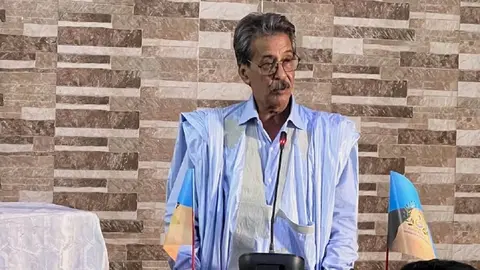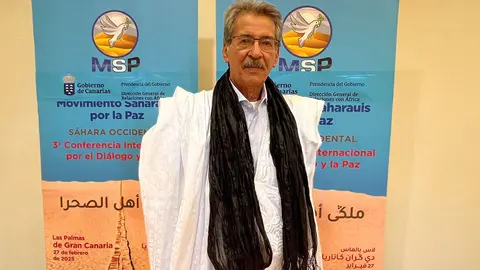Global conflicts make reform of the UN Security Council necessary
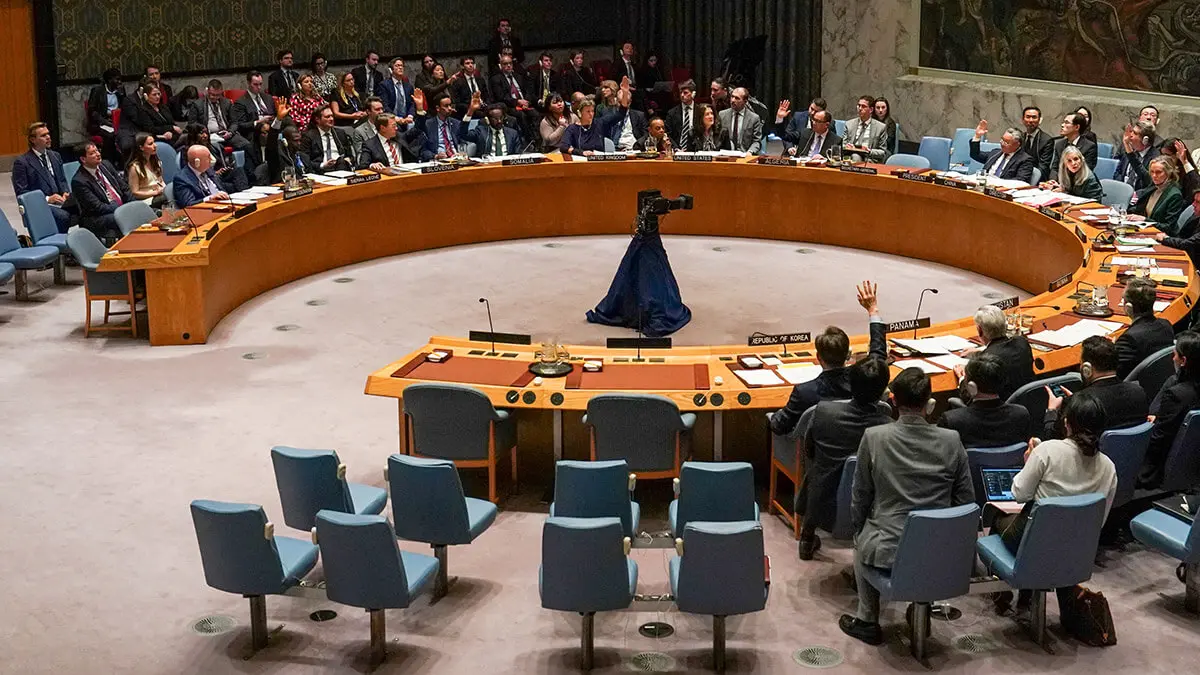
- Debate on the effectiveness and legitimacy of the Security Council
- The case of Gaza and a call for reform
- The role of the Security Council in a changing world order
On 22 May, the UN Security Council held its annual debate on the ‘protection of civilians in armed conflict’. The session was attended by key figures such as Tom Fletcher, Under-Secretary-General for Humanitarian Affairs and Emergency Relief Coordinator; Sima Sami Bahous, Executive Director of UN Women; Mirjana Spoljaric Egger, President of the International Committee of the Red Cross; and Janti Soeripto, President and CEO of Save the Children in the United States.
During the meeting, the evolution of contemporary armed conflicts was highlighted, characterised by the use of explosive weapons in populated areas; advances in military technology; cyber operations; and the spread of false information. These factors have increased the danger to affected communities and hampered access and security for humanitarian workers, United Nations personnel and journalists.
In addition, the Under-Secretary-General for Humanitarian Affairs presented the latest Annual Report on the Protection of Civilians to member states. In 2024, the UN recorded that more than 36,000 people were killed in 14 armed conflicts. The widespread use of high-explosive weapons in urban areas, such as those seen in Gaza, Lebanon, Myanmar, Sudan, Syria and Ukraine, has caused the majority of civilian casualties. Mass displacement also occurred in countries such as the Democratic Republic of the Congo, Myanmar and Sudan.
The report also highlighted severe damage to essential infrastructure, including hospitals, schools and water networks. In Ukraine, more than 300 attacks affected the electricity system, leaving millions without power. Yemen and north-western Syria suffered similar consequences. Meanwhile, in Lebanon, clashes damaged crops and water resources. As a result, the global food crisis intensified: in 2024, more than 280 million people in 59 countries suffered from acute hunger, many in war-torn contexts such as the Central African Republic, Colombia, Mali, Mozambique, Nigeria, Somalia, Syria and Yemen.
Fletcher also warned of the weakening of international law. He insisted that states must strengthen law enforcement and fight impunity. Even when the legal framework is respected, the effects on the civilian population can be devastating, requiring firm and effective measures for their protection.

Debate on the effectiveness and legitimacy of the Security Council
In 1945, at the end of the Second World War, representatives of 50 nations gathered in San Francisco to form a new international body. This gave rise to the United Nations (UN), whose founding charter established six main organs, including the body responsible for preserving global peace: the Security Council.
This body's main function is to maintain international peace and security. It is composed of 15 members (five permanent members with veto power and ten rotating members) and, when faced with a complaint of a possible threat to peace, the Council usually recommends a peaceful solution. In certain cases, it may impose sanctions or authorise the use of force to preserve international peace and security.
According to official United Nations data, 12 resolutions have been adopted so far this year. These statements reflect both the official position of the UN bodies and specific measures, and are divided into an introductory part and a resolution part.
According to the Council's monthly bulletin, during April, under the French presidency, the body adopted resolution 2778 to extend the mandate of the UN mission in South Sudan. It also issued statements on the crises in Myanmar, Sudan and an attack in Jammu and Kashmir. Although the May bulletin has not yet been published, a new text on Sudan and South Sudan was approved on 8 May.
Despite these advances, non-governmental organisations and some countries continue to point to the inefficiency of the body, particularly the repeated use of the veto by its permanent members. The UN itself, in an article published in the Regional Information Centre entitled ‘Is it possible to reform the UN Security Council?’ in 2023, acknowledged that the body failed to agree on a resolution on the war between Israel and Hamas after several failed attempts, due to the veto power of the five members.
In addition, the Spanish non-governmental development cooperation organisation Oxfam Intermón (affiliated with the Oxfam confederation) also criticised the UN body for its inability to protect people in conflict zones. It singled out the United States and Russia for blocking decisions aimed at resolving crises such as those in Ukraine, Syria and Palestine by using their veto power. An Oxman report, ‘Veto on Humanity,’ analysed 23 protracted conflicts and revealed that 27 of 30 Security Council vetoes focused on the Occupied Palestinian Territory, Syria and Ukraine. It also points out that the five permanent members of the Council abuse their veto to protect geopolitical interests, weakening the Council's ability to maintain global peace.
‘China, France, Russia, the United Kingdom and the United States assumed responsibility for global security as part of the Security Council in a bygone era marked by colonialism. The contradictions that arise from acting as judge and jury within the framework of their own alliances, interests and military exploits are incompatible with a world seeking peace and justice for all people,’ said Oxfam International Executive Director Amitabh Behar.
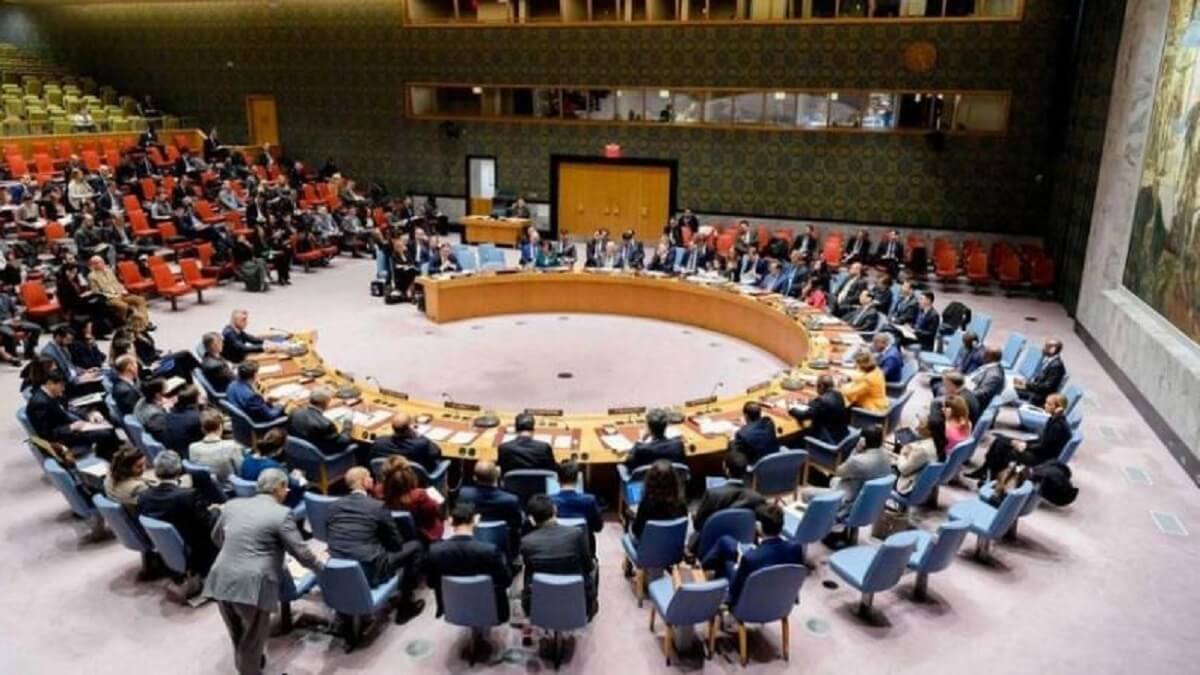
The case of Gaza and a call for reform
Since October 2023, the Gaza Strip has been the scene of a military offensive that has claimed thousands of lives. As noted, the UN body responsible for global security was unable to adopt immediate resolutions to stop the violence, drawing criticism from governments, public opinion and even organisations such as the Arab League, who pointed to the body's ineffectiveness in maintaining international peace and security, as well as the lack of consensus to stop the conflict between the two sides (Israel and Hamas) and the absence of a real international will to end the military operation in the area.
It was not until March 2024 that Resolution 2728 was passed, calling for a ceasefire during Ramadan. Washington abstained, allowing it to be adopted.
This and the current conflicts have once again brought to the fore the need to reform the Security Council. The UN Regional Information Centre indicates that reform of the Security Council is a long-standing issue. The debate mainly revolves around the right of veto and the lack of representativeness. The Council is composed of ten non-permanent members, elected for two-year terms, and five permanent members with veto power. The latter do not include representatives from regions such as South America, Africa or the Caribbean.
In 2005, a group called the ‘G4’ (Germany, Japan, India and Brazil) proposed expanding the membership to 25 members, including six additional permanent seats. France supported the initiative, highlighting the need to strengthen African representation (as permanent and non-permanent members) to correct a historical exclusion.
Africa, with 54 countries and more than 1.4 billion people, represents 28% of UN members. In addition, half of the issues dealt with by the Council are related to this continent. According to the Regional Information Centre, in 2005, African leaders presented the ‘Ezulwini Consensus’, proposing two permanent and five non-permanent seats for Africa. However, the proposal has not progressed due to internal divisions and the lack of consensus among regional powers such as Egypt, Nigeria and South Africa. Expanding membership could strengthen the Council's legitimacy, but the debate over extending veto power complicates negotiations.
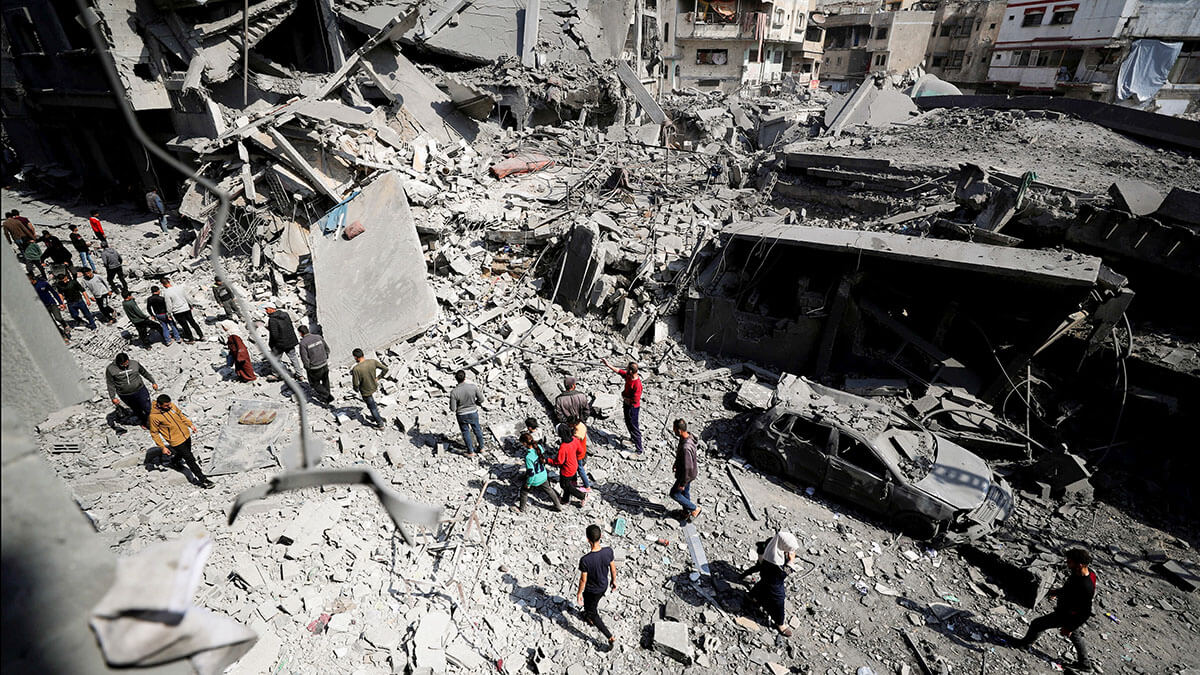
The role of the Security Council in a changing world order
Almost 80 years after its creation, the UN's main security body faces serious questions about its effectiveness, legitimacy and representativeness. While it has made progress, such as passing resolutions on specific crises, its ability to act is limited by the recurrent use of the veto by its permanent members. This right has clearly blocked urgent responses to conflicts such as the one in Gaza, generating frustration among countries, organisations and civil society. Proposals for reform, particularly regarding the veto power and the inclusion of unrepresented regions such as Africa and Latin America, remain on the table, but without concrete progress.
There is no doubt that the Security Council and its role in a changing world order require a thorough review of its structures and decisions if international peace and security are to be preserved in the current context.

